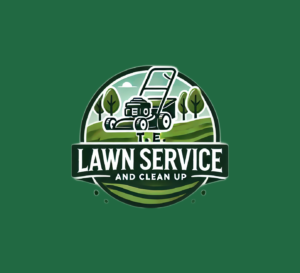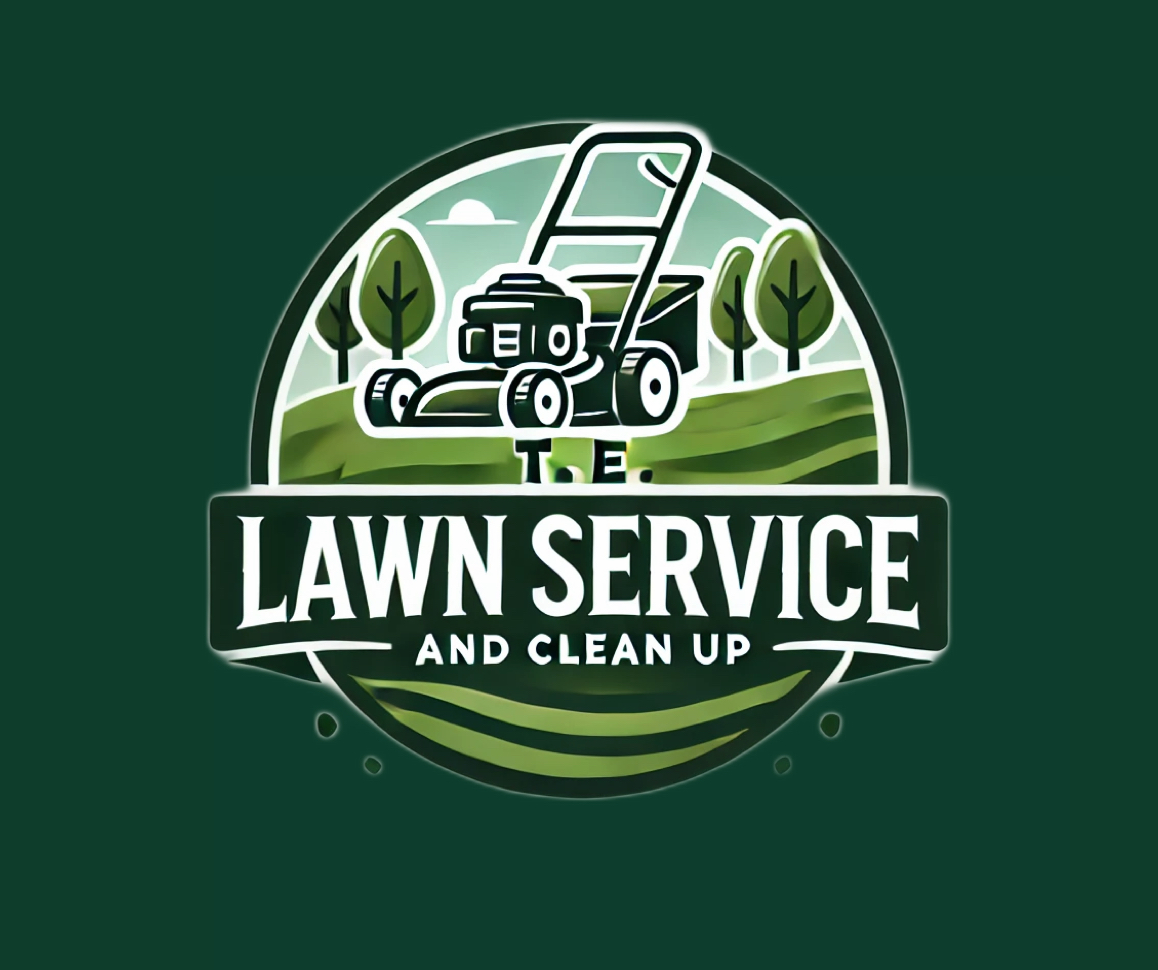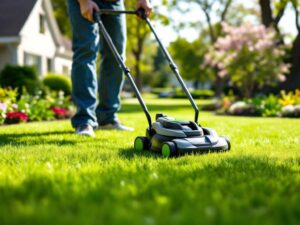A lush, green lawn is one of the best ways to boost curb appeal for your Atlanta home. But nothing ruins a yard faster than weeds. Crabgrass, dandelions, clover, and other invasive plants spread quickly, stealing water and nutrients from your grass. The challenge is removing weeds without harming the healthy turf you’ve worked so hard to grow.
At TE Lawn Service and Clean Up, we understand how frustrating weeds can be for Atlanta homeowners. The good news is that with the right techniques, you can tackle weeds effectively while keeping your lawn thick and vibrant. This guide will walk you through the most effective DIY methods—and when to call in professionals for lasting results.
Why Weeds Are a Problem in Atlanta Lawns
Weeds are more than just an eyesore. In Atlanta’s climate, where summers are hot and humid and winters are mild, weeds thrive almost year-round. Left untreated, they:
- Compete with grass for water, nutrients, and sunlight.
- Spread quickly through seeds, runners, or roots.
- Create thin, patchy spots that invite pests and disease.
Common weeds in Atlanta include:
- Crabgrass – Aggressive annual weed common in sunny areas.
- Dandelions – Deep-rooted perennials with yellow flowers.
- Clover – Low-growing weed that spreads across lawns.
- Chickweed – Cool-season weed that flourishes in winter.
- Nutsedge – Grass-like weed that thrives in wet areas.
The key to weed control is targeting them precisely without damaging the surrounding grass.
Step 1: Strengthen Your Lawn First
The healthiest defense against weeds is a thick, thriving lawn. Bare or stressed areas are an open invitation for weed seeds to germinate. To strengthen your lawn:
- Mow at the correct height (never scalp).
- Water deeply and infrequently to encourage strong roots.
- Fertilize appropriately based on grass type and soil test.
- Aerate annually to relieve compaction and improve nutrient absorption.
By improving your lawn’s overall health, weeds will have fewer opportunities to establish.
Step 2: Identify the Type of Weeds
Before treating weeds, you need to know what you’re up against. Weeds fall into three main categories:
- Broadleaf weeds – Dandelions, clover, chickweed.
- Grassy weeds – Crabgrass, goosegrass.
- Sedge weeds – Nutsedge.
Different weeds require different treatments. For example, a broadleaf herbicide won’t work on crabgrass, and crabgrass preventers won’t control dandelions.
Pro Tip: Snap a photo of the weed or take a sample to your local garden center if you’re unsure.
Step 3: Use Pre-Emergent Herbicides
The best way to stop weeds is to prevent them from growing in the first place. Pre-emergent herbicides form a barrier in the soil that prevents weed seeds from germinating.
In Atlanta, apply pre-emergents:
- Spring (February–March): For crabgrass and summer annuals.
- Fall (September–October): For winter weeds like chickweed and annual bluegrass.
Timing is crucial—if you miss the window, weeds will already be sprouting.
Step 4: Spot-Treat Existing Weeds
If weeds are already growing, spot-treating is the safest way to remove them without killing your grass.
Options include:
- Selective herbicides – Target specific weeds (like broadleaf herbicides for dandelions) without harming grass.
- Natural remedies – Boiling water or vinegar sprays can kill small patches of weeds but may also harm nearby grass if not applied carefully.
- Hand-pulling – Effective for small infestations if you remove the entire root system.
For stubborn weeds like dandelions and nutsedge, use a weeding tool to extract deep roots.
Step 5: Avoid Non-Selective Herbicides
Products like Roundup (glyphosate) kill everything they touch—grass included. While they’re effective on driveways or walkways, they should never be used directly on your lawn unless you’re planning to reseed the area.
Homeowners in Atlanta often make the mistake of using these products on broad patches, only to discover dead grass along with the weeds. Stick to selective treatments when working within your turf.
Step 6: Overseed Thin Areas
Thin, bare spots are a magnet for weeds. Overseeding helps crowd them out by thickening your lawn.
In Atlanta:
- Fescue lawns should be overseeded in early fall (September–October).
- Warm-season grasses like Bermuda or Zoysia can be overseeded in late spring once soil temperatures rise.
Combine overseeding with proper fertilization to encourage fast establishment of new grass.
Step 7: Improve Soil Health
Weeds often flourish in compacted or nutrient-poor soil. Improving your soil reduces weed pressure naturally.
- Aerate annually to improve root growth.
- Topdress with compost to boost organic matter.
- Adjust soil pH if necessary (most grasses prefer 6.0–7.0).
A soil test will tell you exactly what amendments your lawn needs.
Step 8: Water Smart
Overwatering creates conditions where weeds like nutsedge thrive, while underwatering stresses grass, making it less competitive.
For Atlanta lawns, the rule of thumb is:
- Water 1 inch per week (including rainfall).
- Water deeply and infrequently to encourage deep root growth.
- Water early in the morning to reduce evaporation and fungal growth.
Balanced watering strengthens grass while discouraging weeds.
Step 9: Mulch and Edge Landscape Beds
Weeds don’t just invade lawns—they creep into flower beds and around trees. Mulching helps smother weed seeds while retaining soil moisture.
Apply 2–3 inches of mulch around trees, shrubs, and garden beds, refreshing as needed. Edging your lawn also prevents creeping weeds like Bermuda runners from invading landscaped areas.
Step 10: Know When to Call a Professional
DIY weed control can go a long way, but some infestations require professional help. Atlanta’s climate makes certain weeds—like crabgrass and nutsedge—especially persistent. TE Lawn Service and Clean Up offers customized weed control programs that eliminate weeds without harming your lawn.
Professional advantages include:
- Access to commercial-grade herbicides safe for lawns.
- Precise timing of pre-emergent and post-emergent treatments.
- Integrated lawn care including fertilization, mowing, and aeration.
- Long-term strategies to prevent weeds from coming back.
If you’re tired of fighting weeds year after year, hiring a lawn care company ensures consistent, lasting results.
Conclusion
Weeds are a constant battle in Atlanta lawns, but with the right strategy, you can keep them under control without damaging your grass. Strengthening your lawn, applying pre-emergents, spot-treating weeds, and improving soil health all contribute to a greener, healthier yard.
By following these 10 steps, homeowners can handle many weed problems on their own. But for those who want guaranteed results, TE Lawn Service and Clean Up offers professional weed control and lawn care across Atlanta.
Don’t let weeds take over your lawn this season. Contact TE Lawn Service today to schedule a consultation and enjoy a thick, weed-free lawn you’ll be proud of.




